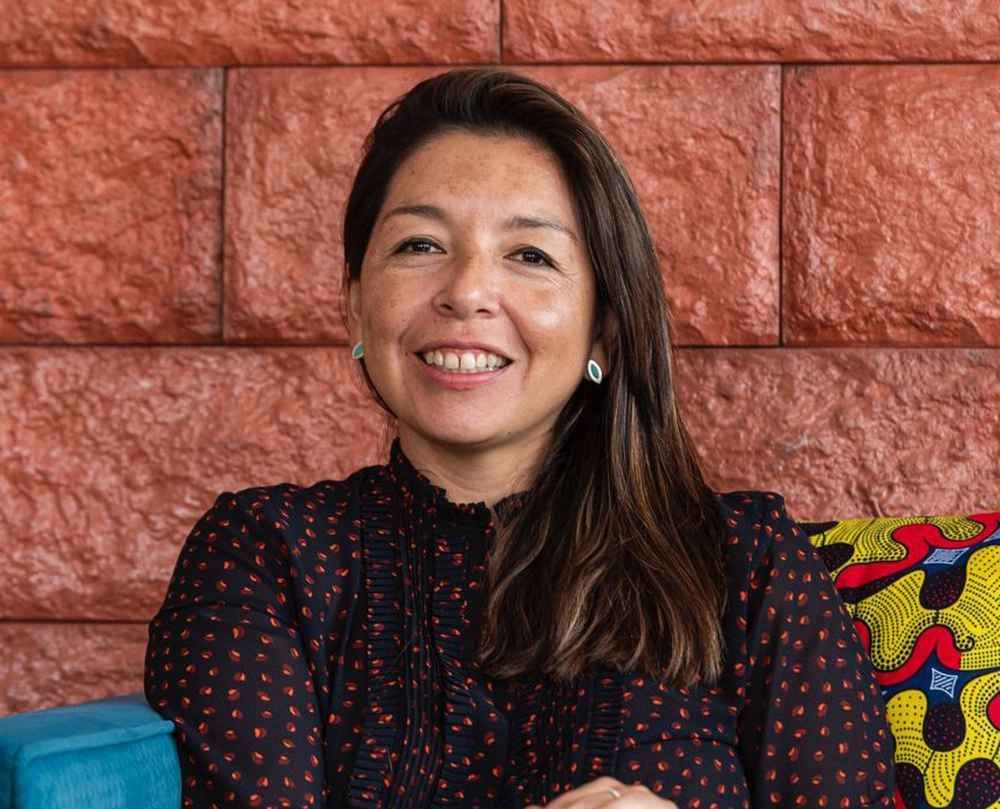
Sofia earned an MA in Multi-Disciplinary Gender Studies and PhD in Geography at the University of Cambridge. She previously served as a research associate in the University of Cuenca (Ecuador) Department of Space and Population, a post-doctoral fellow at Cambridge, and most recently an assistant professor of international relations at the Universidad San Francisco de Quito in Ecuador.
How did you decide to become a geographer?
While working as a consultant for the United Nations, I led a study on the link between gender-based violence and border spaces in the Andes. I knew immediately that human experience was intricately tied to the social construction of space. I had also become acutely aware of the importance of place for everyday life as a child migrant to the United States. Finally, most of my adult life has been in the Global South, primarily in Ecuador except for five years for my doctoral training in the UK. I continue to transit between the Global South and North, and this has informed my research and teaching practices. As I crossed the border again and again - in my life, research, homemaking, teaching, collaborations, and lectures - I saw and now write about critical geography scholarship on gender, race, and territory.
What is your most memorable field research experience?
I balance my work to make and execute national and international policies with on-the-ground activism. My most memorable research experiences have been within collective critical geography spaces. I co-founded a transnational antiracist collective in 2019 that brings together activists and researchers based in Ecuador that advocate for a hemispheric approach to antiracism, Re-Existencia Cimarrunas. I have also been a key member of the Critical Geography Collective of Ecuador since 2014, which is exemplary of contemporary feminist collective geography movement in Latin America that focuses on social transformation from autonomous spaces of knowledge construction. Both collectives are research activist spaces that prioritize collective (versus individual) authorship and action on feminist geography and antiracist literature is developed and disseminated at local, urban/rural, national and global scales.
What are your current research interests and directions?
The arc of my work interrogates decolonial feminist geographical knowledge construction and praxis across the Americas. Combining social cartography, ethnography, and oral history. I examine how to translate and enact critical geography and feminist theory at a hemispheric scale. One of the core areas of my research has long been the relationship between gender-based violence in the extractivist industry and aquatic spaces (rivers and oceans) across the Americas, because I believe this topic has hard-hitting policy implications for climate change while allowing for the articulation of decolonial feminist theory and methods. I am currently leading a project that focuses on gender-based violence, feminist political ecology and feminist geography in the Galapagos Islands where I have been doing research since 2020. This research looks at how gender-based violence occurs in insular spaces where there is limited infrastructure and resources available.
The next phase in this project looks to understand the complexities of working on gender-based violence in an UNESCO world heritage site where inhabitants, and in particular women, perceive that the rights of nature are more valued than their rights. My goal with this work is to connect two Island spaces in Latin America such as the Galapagos Islands and Easter Island, both highly understudied areas with regards to feminist geography perspectives and elaborate incipient reflections on Latin American feminist political ecology in Islands Spaces and critical climate change studies.